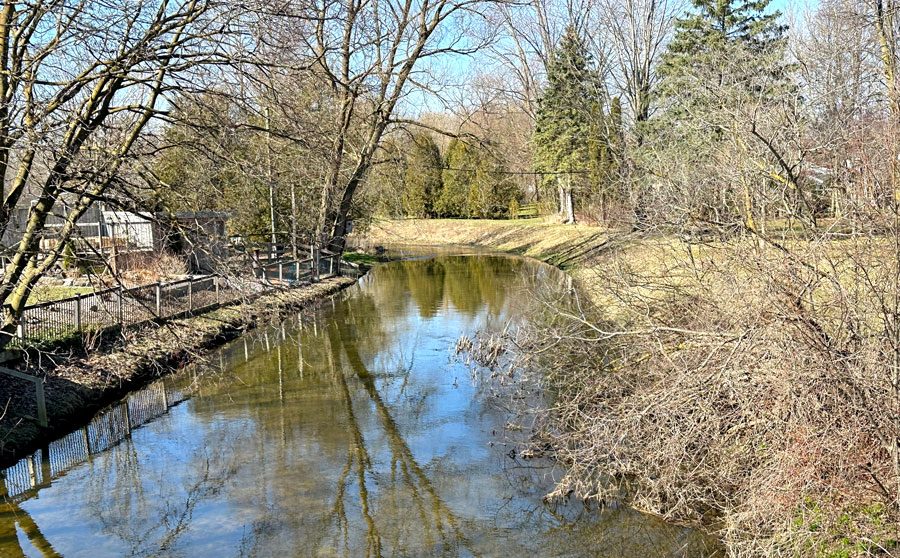MINTO – A regional source water protection committee is sounding the alarm about a proposal to end free water testing for private wells in Ontario.
Minto council passed a resolution at its March 5 meeting in support of resolution from the Ausable Bayfield Maitland Valley Source Protection Region committee asking the province not to proceed with a recommendation to phase out free testing.
In a letter to provincial Minister of Agriculture Lisa Thompson, committee chair Matthew Pearson raised the spectre of the Walkerton water crisis, which left seven people dead and caused more than 2,000 to fall ill when E. coli entered the community’s water system.
“In the Walkerton Inquiry Report Part 2, Justice O’Connor concluded the privatization of laboratory testing of (municipal) drinking water samples connected directly to the E. coli O157:H7 outbreak in Walkerton Ontario in May 2000,” the letter states.
“Twenty-four years later, there is a proposal to privatize water testing once again.”
The committee’s concern centres on a recommendation in the provincial Auditor General’s 2023 Value-for-Money Audit of Public Health Ontario (PHO), which was released in December.
The auditor recommended PHO, in conjunction with the Ministry of Health (MOH), update and implement a laboratory modernization plan within 12 months to streamline the laboratory’s operations.
“This stemmed from a 2017 proposal by PHO, collaboratively with the MOH at the request of the deputy minister, to close six of the 11 public health laboratory sites (Hamilton, Kingston, Orillia, Peterborough, Sault Ste. Marie and Timmins) and gradually discontinue private drinking water testing,” stated Pearson in the source protection committee’s letter.
Justification cited by the PHO and the MOH for the moves includes mitigating rising costs of maintaining facilities and establishing “a more efficient operating model that reduces the rerouting of samples to other PHO laboratory sites.”
About 50% of the Ausable Bayfield Maitland Valley region population is serviced by private wells, Pearson notes in his letter.
“The proposed removal of PHO’s free private drinking water testing is of concern to our Ausable Bayfield Source Protection Committee, particularly when Source Protection Regions have been directed by the Ministry of Environment, Conservation and Parks’ Source Protection Branch, to deliver education and outreach to private well owners under the new best practices initiative.”
The letter points out the committee has been working with service and community organizations in the region, such as Lions Clubs, Optimist Clubs and lakeshore residents associations to co-host “very successful” Best Practices Water Wise events that encourage private well owners to sample their drinking water using the free microbial testing provided by the province.
“By distributing water sample bottles ahead of the event and delivering the samples to Huron Perth Public Health for lab analysis, most of the barriers to water sampling are removed,” the letter notes.
“At these events 25 to 50% of a community’s well water will be sampled in one day or night.
“Well owners understand the importance of testing their well water; it is the inconvenience of doing so that is the barrier.”
The source protection committee points out that private drinking water systems in Ontario don’t have the legislated safeguards required for municipal, communal and public systems under the Safe Drinking Water Act, 2002 and only municipal water supply systems fall under the Clean Water Act, 2006 and the Source Water Protection program.
“Health Canada’s guidance on waterborne pathogens references three studies that determine that private systems are vulnerable and there is evidence that demonstrates they are more likely to contribute to gastrointestinal illness than public drinking water systems,” the letter states.
The committee feels a phase-out of free water testing, forcing well owners to pay a fee to commercial labs, would “disincentivize testing.”
“When water is not monitored regularly, there is no way to know the true quality of the water, which puts people at increased risk of becoming ill,” the letter states.
“With private systems being stand-alone systems, any associated illnesses are isolated sporadic events and do not come to public attention like those seen during the Walkerton outbreak.”
The local source protection committee passed a resolution at its Jan. 31 meeting to direct a letter to Thompson asking the province not to proceed “with the recommended phase-out of free private well testing in Ontario.”
The resolution was circulated to area municipalities, the Minister of Environment Conservation and Parks, MOH, other source protection committees and local health units in an effort to elicit support.
Councillor Judy Dirksen suggested that council support the committee’s resolution.
“I think that the Ausable Bayfield Maitland Valley Source Protection Committee has a problem, or has a concern, with putting a charge on it, because people will just simply stop testing, because it’s one of those things that it’s hard to get people to do anyway,” said Dirksen.
“And if you have a charge to it, it’s going to be even more difficult to get people to do that.”
A motion in support of the resolution was approved by council.




